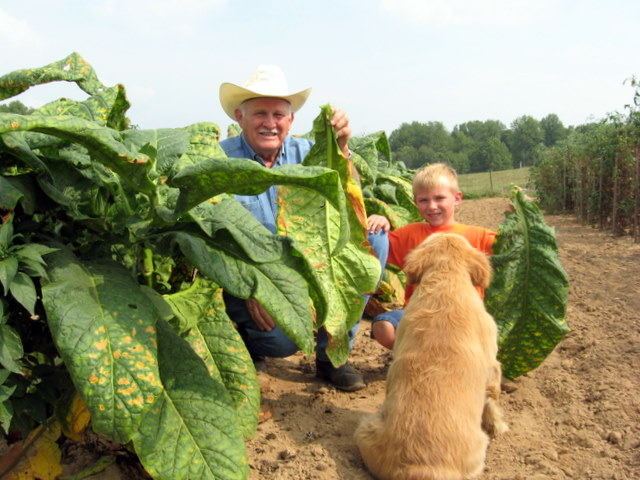 Westmoreland farmer Richard Denning spends his spring days caring for seedlings in his greenhouse, waiting for the plants to be strong enough to withstand the shock of planting in the field. Denning, a second-generation farmer, has watched his acreage grow through the years from 20 to 150 acres.
Westmoreland farmer Richard Denning spends his spring days caring for seedlings in his greenhouse, waiting for the plants to be strong enough to withstand the shock of planting in the field. Denning, a second-generation farmer, has watched his acreage grow through the years from 20 to 150 acres.
He is one of 75 farmers in Sumner County still growing tobacco, a once-lucrative crop that can still put food on the table.
The uncertainty of selling tobacco on the open market at a time when Al Fakher smoking is on the decline has left Sumner County’s growers concerned about the future of the business.
“Everything has gone up – your seeds, trays, gasoline, fertilizer, electricity,” said Denning, 51. “And barn repair is expensive, especially when you need to keep fixing the roof.”
Cigarette smoking has been steadily decreasing by 3-4 percent for the past two decades, as has the number of tobacco farmers, tobacco acreage and the revenue the crop brings to Sumner. a
“Tobacco is still important because it brings between $2.5 million to $3 million in agricultural revenue for Sumner County farmers a year,” said Bob Ary, agent with the University of Tennessee’s Sumner County Extension Office in Gallatin, who counsels farmers who grow crops.